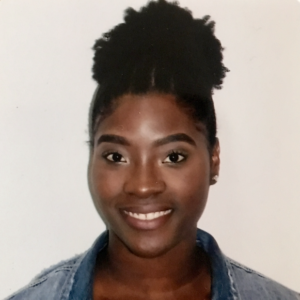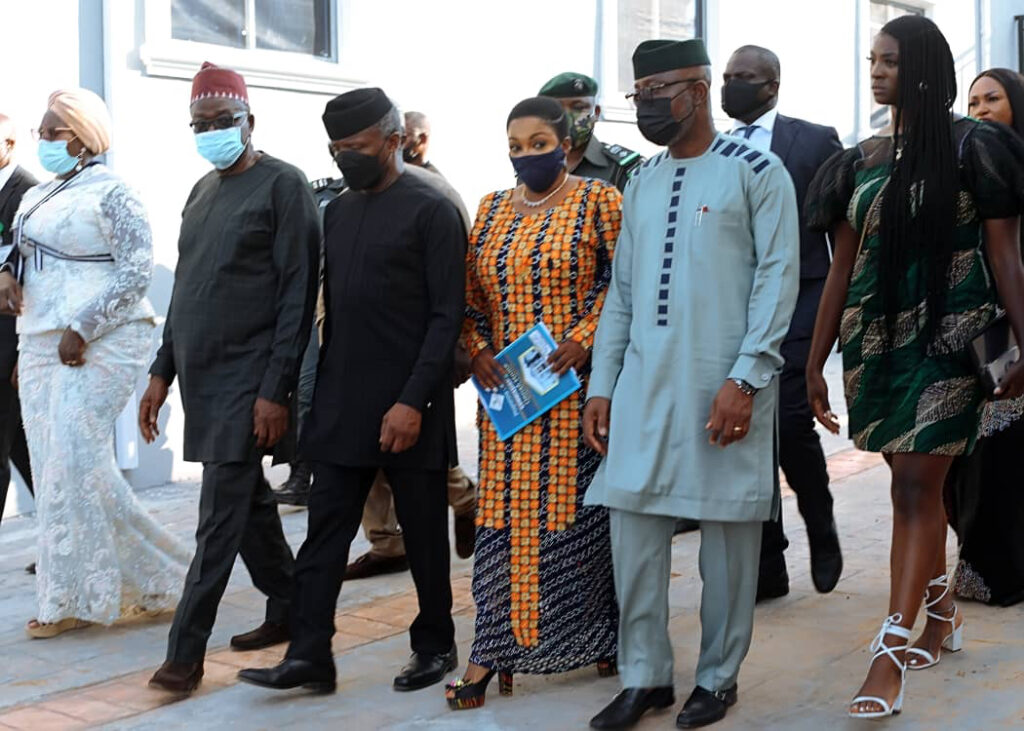Rayo Soyemi
Global Health MPH'22

May 5, 2022
What was your background prior to coming to Rollins?
In undergrad, I studied public health at the University of California Merced. I had an internship at the CDC in my junior year and then I worked at a local non-profit called Healthy House that gave health services to minorities within Merced, such as the Hmong population. There was a project with pregnant women and local Black churches, so that was how I first was exposed to maternal and child health, and I did a lot of health education around oral health and breastfeeding. I worked as a behavioral health specialist for foster youth for two years before coming to Rollins.
Why did you choose to study global health MCH at Rollins?
Rollins was my top choice. I moved to Atlanta for three months during my junior year for the CDC internship, so I was familiar with Emory since it was nearby. I went to tour Emory, and I really liked the campus and it’s one of the top public health schools. I thought it’d be the perfect choice for me. It’s definitely lived up to my standards of being a top institution with quality education, resources, opportunities, and guidance from faculty.
What have been your favorite classes at Rollins?
I’m in the Sexual and Reproductive Health and Population Studies concentration in Global Health. I’ve really enjoyed Religion and Health in Context: HIV, Qualitative Methods, and Gender and Global Health. I’ve also really liked the MCH classes, the topics we cover are right up my alley. I liked the MCH Foundations class, especially the lecture Dr. Michael Kramer gave on the life course. I’m grateful for the MCH program, each time I’m in those classes I learn a lot to take me further in my MCH career.
What professional opportunities have you taken advantage of while at Rollins?
I had the Rollins Global Field Experience Financial Award (GFEFA) last summer for my work at Dorian Home, which is an orphanage started by my aunt in Nigeria’s Ondo State. I did research on how orphanages for vulnerable children have traditionally been run. I was able to help create a starter document on how to strengthen programs in Nigeria, and I put together a little plan for a maternal and child health center. I created two pamphlets they can use, and one was on breastfeeding.
October 2021 was the commissioning of Dorian Home, and the Vice President of Nigeria came, along with a bunch of stakeholders from across the country. It is slated to be the largest orphanage in Africa, so it has enough room for seven hundred children (see video tour here). It was a lot of hard work to get it up and running and now to get a full working staff. There is not a uniform social services system in Nigeria for children and orphans, so orphanages are typically private and run by the community. In Ondo State there has been a decline in opportunities for children and a lot of poverty, which increases the need for an orphanage.

Photo courtesy of Rayo Soyemi.
What did you do for your practicum?
For my practicum, currently, I’m interning at USAID. I am working in the Global Health Bureau in the Office of HIV in Priority Populations, within the Youth Branch. My focus is on youth engagement, specifically looking at the DREAMS (Determined, Resilient, Empowered, AIDS-free, Mentored and Safe) program, which supports adolescent girls and young women who are vulnerable to HIV/AIDS in countries in sub-Saharan Africa and in Haiti. It’s a holistic model to empower girls and young women, strengthen families, and build social and economic assets.
I just sent out a survey to DREAMS ambassadors, who are currently working as full-time employees of the implementing organizations that are doing on-the-ground work. I’m evaluating the ambassadors’ roles and responsibilities through surveys and in-depth interviews. It’s been a learning opportunity to work in the government with such a large-scale program. It has really opened my eyes to the different nuances and aspects of social and community change and to the clinical cascade of HIV/AIDS. Adolescent girls and young women are often left out of the conversation, but they play a really important role in changing norms.
What are you hoping to do in the future?
I am still very much interested in MCH. I want to continue working in global health and international aid.
Do you have any advice for current or future MCH students?
Definitely take advantage of the resources Emory puts out for employment opportunities, but also take it a step further and do your own research on opportunities you might be interested in. Network with professors because they have linkages or are involved with the organizations and are experts in the field. The two years go by really fast, so looking for opportunities to advance yourself is important.
What do you like to do outside Rollins?
I love to travel and work out and stay active. I went to Nigeria in October, and I hadn’t been since 2010, so this was my first time going as an adult. My favorite vacation has been Bali.
